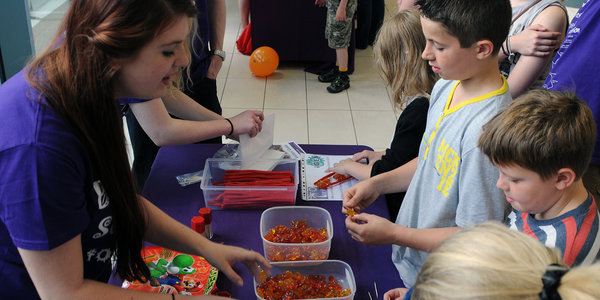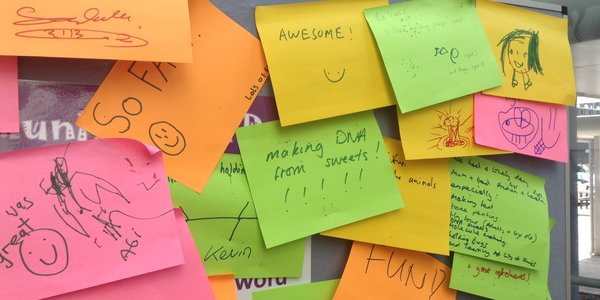Team:Manchester/openday
From 2013.igem.org
| (7 intermediate revisions not shown) | |||
| Line 418: | Line 418: | ||
} | } | ||
| - | . | + | .text1, .text2 |
{ | { | ||
clear:both; | clear:both; | ||
width:920px; | width:920px; | ||
margin:20px; | margin:20px; | ||
| + | background:#F2F2F2; | ||
-webkit-box-shadow: 0px 0px 5px 0px rgba(0,0,0,0.75); | -webkit-box-shadow: 0px 0px 5px 0px rgba(0,0,0,0.75); | ||
-moz-box-shadow: 0px 0px 5px 0px rgba(0,0,0,0.75); | -moz-box-shadow: 0px 0px 5px 0px rgba(0,0,0,0.75); | ||
| Line 428: | Line 429: | ||
} | } | ||
| - | . | + | .text1 p |
{ | { | ||
| + | width:670px; | ||
| + | height:400px; | ||
margin:0; | margin:0; | ||
padding:10px; | padding:10px; | ||
background:#F2F2F2; | background:#F2F2F2; | ||
| + | text-align:justify; | ||
color:black; | color:black; | ||
font-family:Trebuchet MS; | font-family:Trebuchet MS; | ||
font-size:14px; | font-size:14px; | ||
color:#4c0082; | color:#4c0082; | ||
| + | } | ||
| + | .text2 p | ||
| + | { | ||
| + | margin:0; | ||
| + | padding:10px; | ||
| + | background:#F2F2F2; | ||
| + | text-align:justify; | ||
| + | color:black; | ||
| + | font-family:Trebuchet MS; | ||
| + | font-size:14px; | ||
| + | color:#4c0082; | ||
} | } | ||
| - | . | + | .text1 #postit, .text2 #postit |
{ | { | ||
float:right; | float:right; | ||
| Line 687: | Line 702: | ||
<li><a href="https://2013.igem.org/Team:Manchester/Modellingtest" id="link6">Modelling</a> | <li><a href="https://2013.igem.org/Team:Manchester/Modellingtest" id="link6">Modelling</a> | ||
<ul class="submenu"> | <ul class="submenu"> | ||
| - | <li><a href="https://2013.igem.org/Team:Manchester/ | + | |
| - | + | <li><a href="https://2013.igem.org/Team:Manchester/parametertest" id="link6">Uncertainty Analysis</a></li> | |
| + | <li><a href="https://2013.igem.org/Team:Manchester/fabAmodeltest" id="link6">FabA Dynamics Model</a></li> | ||
| + | <li><a href="https://2013.igem.org/Team:Manchester/popdynamictest" id="link6">Population Dynamics</a></li> | ||
<li><a href="https://2013.igem.org/Team:Manchester/collabtest" id="link6">Modelling Collaboration</a></li> | <li><a href="https://2013.igem.org/Team:Manchester/collabtest" id="link6">Modelling Collaboration</a></li> | ||
</ul> | </ul> | ||
| Line 709: | Line 726: | ||
<ul class="submenu2"> | <ul class="submenu2"> | ||
<li><a href="https://2013.igem.org/Team:Manchester/environmenttest" id="link4">Environmental Impact</a></li> | <li><a href="https://2013.igem.org/Team:Manchester/environmenttest" id="link4">Environmental Impact</a></li> | ||
| - | <li><a href="https://2013.igem.org/Team:Manchester/economytest" id="link4"> | + | <li><a href="https://2013.igem.org/Team:Manchester/economytest" id="link4">Economic Impact</a></li> |
<li><a href="https://2013.igem.org/Team:Manchester/managementtest" id="link4">Impact Management</a></li> | <li><a href="https://2013.igem.org/Team:Manchester/managementtest" id="link4">Impact Management</a></li> | ||
<li><a href="https://2013.igem.org/Team:Manchester/conclusiontest" id="link4">Conclusion</a></li> | <li><a href="https://2013.igem.org/Team:Manchester/conclusiontest" id="link4">Conclusion</a></li> | ||
</ul> | </ul> | ||
</li> | </li> | ||
| - | + | <li><a href="https://2013.igem.org/Team:Manchester/businesstest" id="link4">Business Plan</a></li> | |
| + | <li><a href="https://2013.igem.org/Team:Manchester/collabtest" id="link4">Modelling Collaboration</a></li> | ||
<li><a href="https://2013.igem.org/Team:Manchester/knoledgetest" id="link4">Knowledge Deficit Assumption</a></li> | <li><a href="https://2013.igem.org/Team:Manchester/knoledgetest" id="link4">Knowledge Deficit Assumption</a></li> | ||
<li><a href="https://2013.igem.org/Team:Manchester/conferencetest" id="link4">Conferences and Discussions</a></li> | <li><a href="https://2013.igem.org/Team:Manchester/conferencetest" id="link4">Conferences and Discussions</a></li> | ||
| Line 757: | Line 775: | ||
<img src="https://static.igem.org/mediawiki/2013/0/0a/DayMan.png" class="right" width="150" height="300"/> | <img src="https://static.igem.org/mediawiki/2013/0/0a/DayMan.png" class="right" width="150" height="300"/> | ||
| - | <div class=" | + | <div class="text1"> |
| - | + | <a href="https://static.igem.org/mediawiki/2013/2/25/Open_Day_Poster.pdf" target="_blank"><img id="postit" src="https://static.igem.org/mediawiki/2013/2/29/Postercrop.png" width="215" height="400"/></a> | |
<p><b>Overview:</b><br> | <p><b>Overview:</b><br> | ||
On Saturday 6th July 2013, the outreach team hosted a poster stand at the University of Manchester’s Community Open Day. Everyone in Manchester was invited, meaning that our guests could range from toddlers all the way up to pensioners! | On Saturday 6th July 2013, the outreach team hosted a poster stand at the University of Manchester’s Community Open Day. Everyone in Manchester was invited, meaning that our guests could range from toddlers all the way up to pensioners! | ||
<br><br> | <br><br> | ||
As the Sweet DNA activity went down so well with the schoolchildren during our <a href="https://2013.igem.org/Team:Manchester/stars" target="_blank"> Science Stars</a> workshops, we decided to repeat it once more. Only this time, the kids could actually take away and eat (with their parents’ permission!) their double-helix DNA made out of sweets! We made sure to have at least three team members manning the stall, meaning that whilst the children were busy making their sweet DNA, one team member could talk them through what they were doing and explain how the model that they were making relates to the real structure of DNA. At the same time, the other two team members would have conversations with their parents/guardians, explaining what synthetic biology is, what the iGEM competition is and describing our project in more detail. We also encouraged the people we spoke to to share their concerns, if any, about the use of synthetic biology.<br> | As the Sweet DNA activity went down so well with the schoolchildren during our <a href="https://2013.igem.org/Team:Manchester/stars" target="_blank"> Science Stars</a> workshops, we decided to repeat it once more. Only this time, the kids could actually take away and eat (with their parents’ permission!) their double-helix DNA made out of sweets! We made sure to have at least three team members manning the stall, meaning that whilst the children were busy making their sweet DNA, one team member could talk them through what they were doing and explain how the model that they were making relates to the real structure of DNA. At the same time, the other two team members would have conversations with their parents/guardians, explaining what synthetic biology is, what the iGEM competition is and describing our project in more detail. We also encouraged the people we spoke to to share their concerns, if any, about the use of synthetic biology.<br> | ||
| + | <br> | ||
Click<a href="https://static.igem.org/mediawiki/2013/2/25/Open_Day_Poster.pdf" target="_blank"> here </a>or on the thumbnail on the right to see our full poster! | Click<a href="https://static.igem.org/mediawiki/2013/2/25/Open_Day_Poster.pdf" target="_blank"> here </a>or on the thumbnail on the right to see our full poster! | ||
</p> | </p> | ||
</div> | </div> | ||
| - | <div class=" | + | <div class="text2"> |
<img id="postit" src="https://static.igem.org/mediawiki/2013/b/b9/IMG_2476.JPG" width="500" height="300"/> | <img id="postit" src="https://static.igem.org/mediawiki/2013/b/b9/IMG_2476.JPG" width="500" height="300"/> | ||
<p><b>Reception:</b><br> | <p><b>Reception:</b><br> | ||
| Line 775: | Line 794: | ||
</div> | </div> | ||
| - | + | ||
| - | + | ||
| - | + | ||
| - | + | ||
| - | + | ||
| - | + | ||
| - | + | ||
| - | + | ||
| - | + | ||
| - | + | ||
| - | + | ||
| - | + | ||
| - | + | ||
| - | + | ||
| - | + | ||
| - | + | ||
| - | + | ||
| - | + | ||
| - | + | ||
| - | + | ||
| - | + | ||
| - | + | ||
| - | + | ||
| - | + | ||
| - | + | ||
| - | + | ||
| - | + | ||
| - | + | ||
| - | + | ||
| - | + | ||
| - | + | ||
| - | + | ||
| - | + | ||
| - | + | ||
| - | + | ||
| - | + | ||
| - | + | ||
| - | + | ||
| - | + | ||
| - | + | ||
| - | + | ||
| - | + | ||
| - | + | ||
| - | + | ||
| - | + | ||
| - | + | ||
| - | + | ||
| - | + | ||
| - | + | ||
| - | + | ||
| - | + | ||
| - | + | ||
| - | + | ||
</div> | </div> | ||
</body> | </body> | ||
</html> | </html> | ||
Latest revision as of 17:25, 24 October 2013



Overview:
On Saturday 6th July 2013, the outreach team hosted a poster stand at the University of Manchester’s Community Open Day. Everyone in Manchester was invited, meaning that our guests could range from toddlers all the way up to pensioners!
As the Sweet DNA activity went down so well with the schoolchildren during our Science Stars workshops, we decided to repeat it once more. Only this time, the kids could actually take away and eat (with their parents’ permission!) their double-helix DNA made out of sweets! We made sure to have at least three team members manning the stall, meaning that whilst the children were busy making their sweet DNA, one team member could talk them through what they were doing and explain how the model that they were making relates to the real structure of DNA. At the same time, the other two team members would have conversations with their parents/guardians, explaining what synthetic biology is, what the iGEM competition is and describing our project in more detail. We also encouraged the people we spoke to to share their concerns, if any, about the use of synthetic biology.
Click here or on the thumbnail on the right to see our full poster!

Reception:
The event was a huge success! Over 700 people visited the open day, and our stall was constantly busy for at least 4 hours. We even had to run out to buy more supplies! We were lucky enough to speak to loads of people about what it is we’re doing over the summer break, and many visitors were fascinated by the potential of synthetic biology. One visitor in particular, a biology teacher who retired before the boom of biotechnology, was amazed by how far the science had come in such a relatively short space of time. People complimented the attractiveness and clarity of our poster and used the information on it to ask us questions, both about the palm oil industry and also about synbio in general. Of course, the children loved their sweet DNA gift too!
Feedback was left in the form of a post-it note wall near the exit of the building. Visitors were asked to write a quick comment about the open day and its many stands on a post-it note, and then stick it on the wall for others to see. By the end of the day, the wall was full of colourful notes, all containing lovely comments about the event!
 "
"


























